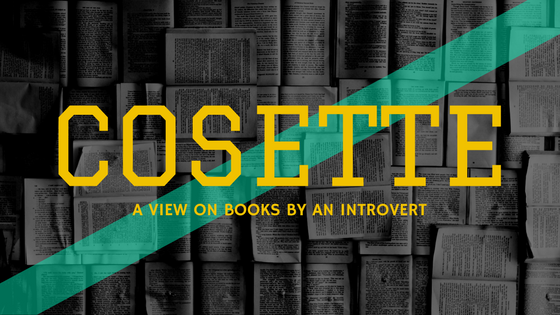Book Review: Graceling

April 11, 2017

You may find it odd that I’m reviewing a book that I read maybe last year, but I remember disliking this one. I don’t usually enjoy ranting about how bad books were because as an aspiring writer myself, I know how difficult a challenge writing can be and how much effort authors put into their stories. However, seeing as how my day hasn’t been the greatest (it’s Monday) and ranting usually lifts my spirits, I’m going to give it a go.
This book.
For the longest time in my life, everyone recommended this book. “Read Graceling,” they said. “It’ll be the best book you’ll ever read,” they said.
In conclusion, after being pestered for who knows how long, I picked up Graceling. In fact, I almost bought it, and I am ever so grateful to Past Cosette for keeping her money for better uses.
The premise seemed interesting enough. Graceling is set in a world where there are the regular humans—of course—and the special snowflakes. Usually I keep a far distance from “You are the sole person to determine the fate of the universe” books, because unless it’s Lord of the Rings, Percy Jackson, or Harry Potter, there is a very likely chance that I’ll be rolling my eyes throughout the entire thing. However, because everyone promised this book would be life changing, I kept going.
In this fantasy world, (without dragons. Only humans. What the heck is up with that?!) those born with heterochromatic eyes are “Graced” with a specific ability. For example, there’s a Grace for cooking, sewing, etc.
Already, this off-set me. Do those with regular eyes not have talents? We aren’t told anything about these people and their lifestyles. The book is centered on those who are Graced. Maybe I expected too much from a book titled “Graceling,” but I found it to demonstrate the lack of world building. Normal people contribute to society too, even in fake lands. Show how.
Our main character, Katsa, which very obviously sounds like a Katniss knockoff, is Graced with killing. Her uncle uses her to do his bidding and rid himself of unwanted enemies.
One of my main issues with this book was the fact that Katsa would tell us how often she killed. Honestly, one of the biggest problems in this book was Katsa herself, but I’ll cover that later. The thing is, if I’m to believe that this girl is a ruthless murderer, I need evidence. The author kept reiterating how often Katsa killed, how she was powerful, etc. But Cashore never really showed us. Other than maybe one scene, Katsa . . . didn’t kill. If she did, she didn’t properly show how she did it, or her thought process while going through with it. The writing when she was supposedly killing felt dull.
The writing itself seemed choppy and awkwardly strung up. It wasn’t enjoyable; it just made me cringe.
On to the point of Katsa. The accusation “Mary Sue” often seems misused in literature, but if ever there was one, it’s her. Katsa is apparently the best at everything. She can build fires and run fast distances without breaking a sweat, she can climb mountains, ride horses with more talent than any other—she can do anything.
She was only Graced with killing. Apparently the author expected me to believe that the Grace of killing came with all these other miraculous abilities. And apparently, the only other opponents who appear in this book, even though they are supposedly the king’s best soldiers set to hunt down Katsa and the boy she befriends and unfortunately forms an unnecessary romantic connection with—Po, are all either regular humans or people with useless Graces. Why doesn’t the king have anyone with a better Grace on his hands besides Katsa? Don’t know. The author doesn’t tell us.
Even if I were Graced with killing, I would still trip over my shoelaces. This girl has been pent up in the palace for the most part, so how does she know how to do any of these things? Why isn’t anyone else Graced like this? Where do Graces come from? We know absolutely nothing.
A main character, even if she is “powerful,” should still have faults. Everyone does. How am I as the reader supposed to connect to a character if she is invincible?
Lastly, the romance feels forced and shallow. People gushed about this book because of the hate turned to love connection, but it made me gag. Honestly, their friendship was genuine and may have been able to save this book had the author not felt the need to turn him into a love interest.
I think that wraps it up. I really couldn’t stand this book to say the least. If you’re looking for a good fantasy that actually delivers an interesting, human heroine, check out Throne of Glass by Sarah J. Maas. The main character may appear as a cardboard cutout at first, but as the books progress, she develops very well.

